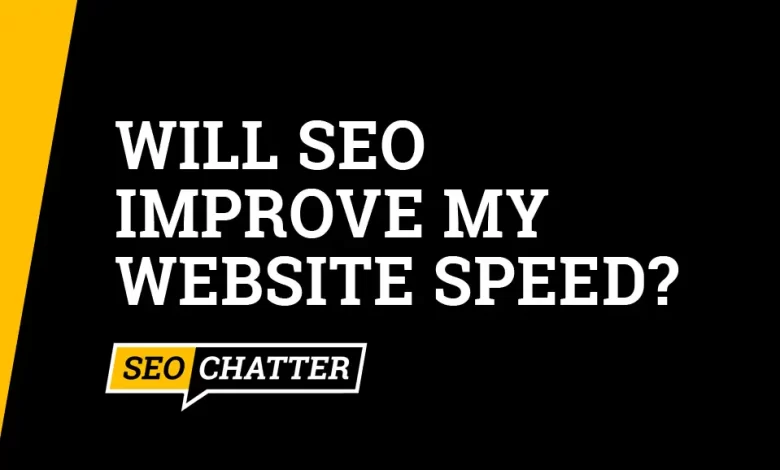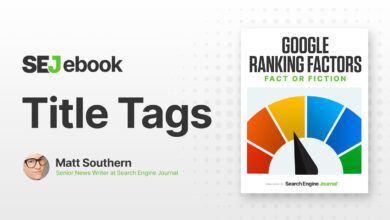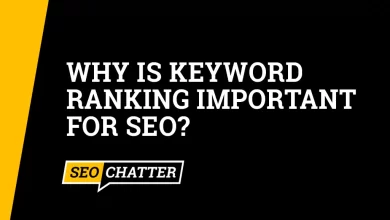Will SEO Improve My Website Speed? (And How Does It)-SEO

Website speed is one of the factors that affect your SEO rankings and user experience. A fast-loading website can help you rank higher on search engines, attract more visitors, and increase conversions.
However, you may be wondering:
Can SEO improve my website speed?
In this article, we will explain if SEO can improve your website speed, and if so, how can you make your website faster and more SEO-friendly.
Will SEO Improve My Website Speed?
SEO will improve your website speed by reducing the time it takes for your web pages to load and display on different devices and browsers. There are technical SEO factors that have a direct effect on website speed that can improve your rankings, user experience, and traffic.
How SEO Improves Your Website Speed
SEO (search engine optimization) is the process of improving your website’s visibility and relevance for relevant keywords and queries. SEO involves various aspects such as keyword research, content creation, link building, user experience, and technical optimization.
One of the technical aspects of SEO is website speed optimization. This refers to the practice of reducing the time it takes for your web pages to load and display on different devices and browsers. This is especially important for passing Google’s Core Web Vitals which are an SEO ranking factor.
Here are some of the best practices for SEO to improve your website speed:
Enable Compression
Compression is a technique that reduces the size of your files by removing unnecessary or redundant data. Compression can help you save bandwidth and improve your loading time. You can use tools like Gzip or Brotli to compress your HTML, CSS, JavaScript, and other text-based files.
Minify CSS, JavaScript, and HTML
Minification is a technique that removes spaces, commas, comments, and other characters that are not essential for code execution. Minification can help you reduce file size and improve performance. You can use tools like CSSNano or UglifyJS to minify your code.
Reduce Redirects
Redirects are instructions that tell browsers to load a different URL than the one requested. Redirects can add extra HTTP requests and delay your loading time. You should avoid or minimize redirects whenever possible, especially on mobile devices.
Remove Render-Blocking JavaScript
Render-blocking JavaScript is code that prevents browsers from rendering a page until it finishes executing. Render-blocking JavaScript can slow down your loading time and affect user experience. You should defer or async render-blocking JavaScript whenever possible.
Leverage Browser Caching
Browser caching is a technique that stores some of your files on the user’s browser so that they don’t have to be downloaded again on subsequent visits. Browser caching can help you reduce server load and improve loading time. You can use tools like YSlow or PageSpeed Insights to check if you have an expiration date set for your cache.
Optimize Images
Images are often the largest files on your web pages and can take up a lot of bandwidth and loading time. You should optimize your images by resizing them, choosing the right format, compressing them, and using responsive images. You can use tools like Photoshop or TinyPNG to optimize your images for website speed.
Use a Content Delivery Network (CDN)
A CDN is a network of servers that deliver your content to users based on their geographic location. A CDN can help you reduce latency, bandwidth consumption, and server load. A CDN can also improve your security and reliability. You can use services like Cloudflare or Akamai to set up a CDN for your site which are popular options in the SEO industry.
Use a Fast SEO Hosting Provider
Another factor that can affect your website speed and SEO is your hosting provider. Your hosting provider is the service that stores and delivers your website files to the users. A good hosting provider can offer you fast, reliable, and secure hosting that can improve your website performance and SEO.
Some of the features to look for in a good SEO hosting provider are:
- High uptime and availability.
- Fast server response time.
- Scalable and flexible resources.
- SSL certificates and HTTPS support.
- CDN integration and caching options.
- SEO-friendly tools and support.
You can use tools like Pingdom or GTmetrix to test your hosting provider’s speed and performance to find out if it is a fast service for SEO. If not, you can look into switching hosting providers that are well-known for SEO website speed such as Cloudways, Siteground, Hostinger, and Liquid Web.
The Effect of SEO and Website Speed Improvements
Using SEO to improve website speed offers several advantages:
- It can boost your rankings on search engines. Google and other search engines use website speed as one of the ranking factors, especially for mobile searches. A faster website that uses SEO technical enhancements can help you outrank your competitors and gain more organic traffic.
- It can improve your user experience. Website speed affects how users perceive and interact with your site. A faster website with good SEO optimizations can reduce bounce rates, increase dwell time, and enhance engagement. A positive user experience can also signal to search engines that your site is relevant and trustworthy.
- It can increase your conversions. Website speed affects how users behave and feel about your site. A faster website can reduce frustration, improve satisfaction, and encourage action. A higher conversion rate can also lead to more revenue and growth which SEO has a direct impact on.
At the same time, website speed can affect SEO performance. See this related guide about Can SEO Be Affected By Website Speed for more details on this topic.
Summary for If SEO Will Improve My Website Speed
There are many SEO factors that influence your website speed, such as your hosting provider, web design, file size, code quality, third-party scripts, and browser compatibility. To use SEO to improve your website speed, you need to analyze and address these factors using various tools and techniques. By following the best practices above, you can optimize your website speed for SEO and provide a better user experience for your visitors which can translate into higher rankings and traffic from the search engines.

The Editorial Staff at SEO Chatter is a team of search engine optimization and digital marketing experts led by Stephen Hockman with more than 15 years of experience in search engine marketing. We publish guides on the fundamentals of SEO for beginner marketers.
#SEO #Improve #Website #Speed





